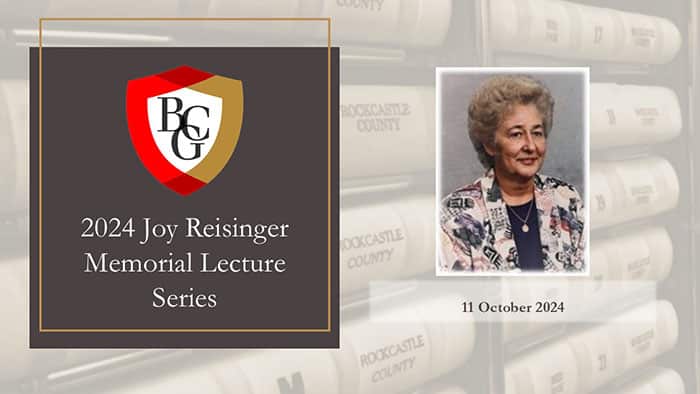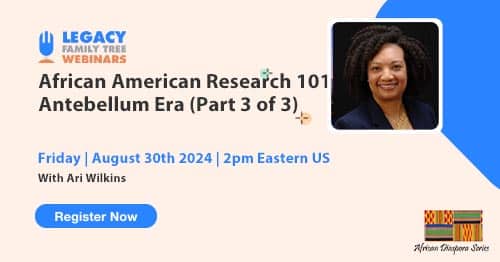African-Americans seeking to discover family roots obscured by slavery may be one step closer to their heritage. Ancestry.com, the world’s largest online family history resource, today expanded the largest online repository of African-American family history records with two new collections that provide unique insights into African-American family history: Freedman’s Marriage Records and Southern Claims Commission Records.
“While these documents depict the horrors of slavery, they also provide invaluable information that help uncover ancestors’ life stories,” said Megan Smolenyak, Chief Family Historian for Ancestry.com. “These documents further cement the fact that African-Americans can discover their family’s heritage, even those ancestors enslaved prior to the Civil War. We’re seeing an increasing interest among African-Americans in tracing their roots, especially as collections such as these are made available and accessible online, rather than stored away in archives.”
Freedman’s Marriage Records
From 1865 to 1868, plantation marriages of thousands of former slaves from 17 Southern states were legalized. Ancestry.com has digitized and made available online a collection of marriage certificates, marriage licenses, and other proofs of the marriage “legalizations.”
Southern Claims Commission Records
Following the end of the Civil War, Southerners filed more than 23,000 claims against the U.S. government for property seized by the Union Army. Claimants furnished answers to some 80 questions about seized property and supplied witnesses, often former slaves, to testify on their behalf. In addition to their name, age and current residence, African-American claimants stated:
- Whether they were free or enslaved at the beginning of the war
- When they became free
- Occupation and residence
- Name of their former masters
- Whether they purchased land from their former masters
African-American witnesses were asked:
- If the claimant was their former master
- Whether they currently worked for him
- Whether they currently lived on his land
- To give testimony of any property seizure they witnessed
In one April 1867 example, former slaves Gabe and Aleck Banks of Baldwin, Georgia, offer eyewitness accounts of the Union Army seizing their former master’s horses and mules. “The Cavalry Came Riding up to the Gate . . . ,” said Gabe Banks, “and made me get the Bridles and catch the horses and mules for them.” The local commissioner hand recorded each man’s testimony in the claim document, viewable on Ancestry.com’s blog at http://blogs.ancestry.com.
In February 2007, Ancestry.com propelled the topic of African-American family history to the nation’s forefront with the shocking discovery that the Reverend Al Sharpton’s ancestors were owned by the late Senator Strom Thurmond’s ancestors.
The Freedman’s Marriage Records and Southern Claims Commission Records are the latest additions to Ancestry.com’s ever-growing collection of African-American family history documents. The collection also includes:
- U.S. Colored Troops – Records for more than 86,000 African-Americans who served in the Union Army during the Civil War.
- Freedmen’s Bureau Records – Documents include records of schools, labor contracts, hospital discharge papers and more from 1865 to 1872.
- Freedman’s Bank Records – More than 178,000 names of depositors of Freedman’s Savings and Trust, which served thousands of African-American former slaves between 1865 and 1874 throughout the Southern States.
- U.S. Census Records (1790–1930) – More than 53 million African-Americans names appear in U.S. census records, especially those taken in 1870 and later. Ancestry.com’s special index filter reveals all African-American entries, regardless of whether individuals were listed as “colored,” “Negro,” “black” or “mulatto.”
- African-American Historical Photos – Thousands of photos from the National Archives and Library of Congress Photo Collections portraying African-Americans throughout American life as well as military history from 1850 to the present.
- Slave Narratives – First-hand accounts collected by the U.S. government during the Great Depression capture the incredible life stories of 3,500 former slaves.
- Slave Schedules – Recorded as part of the 1850 and 1860 U.S. Censuses, these records offer insights into formerly enslaved ancestors, including ages and names of former masters.
- WWI Draft Cards – Nearly two million black men registered for the WWI draft in 1917 and 1918. These records offer personal details about military ancestors including physical descriptions and personal signatures.
Users can explore the African-American Historical Records Collection and begin piecing together their family tree at http://www.ancestry.com/aahistory.



Comments (0)